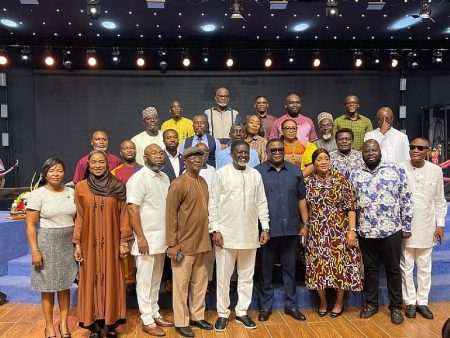The termination of the sanitation module contract between Zoomlion Ghana Limited and the Youth Employment Agency (YEA) marks a significant shift in Ghana’s governance landscape, signaling a potential responsiveness to public advocacy and investigative journalism. This decision, lauded by IMANI Africa’s Vice President, Bright Simons, follows years of campaigning by investigative journalist Manasseh Azure Awuni, who persistently questioned the contract’s terms and its lack of competitive bidding. The contract, which allocated a substantial portion of funds to Zoomlion for administrative purposes while paying a relatively small sum directly to sanitation workers, had been a subject of scrutiny due to alleged discrepancies between reported worker numbers and those actually on the ground. This termination represents a hopeful precedent for governance activists seeking to influence policy and promote transparency.
The core issue at stake revolves around the allocation of public funds and the fairness of contractual arrangements. Zoomlion, under the now-terminated contract, received GHS850 per worker each month, of which only GHS258 was paid to the individual sweepers. The remaining GHS592 was retained by the company for administrative costs, a figure deemed disproportionately high by critics. This arrangement raised concerns about potential financial mismanagement and exploitation of sanitation workers, who received a meager portion of the allocated funds despite performing essential public services. Manasseh Azure Awuni’s persistent investigation and advocacy brought these concerns to the forefront, ultimately leading to the contract’s termination.
The decision to terminate the contract signifies a potential departure from past practices characterized by a lack of transparency and accountability. Simons’ commendation of the new government’s responsiveness suggests a renewed commitment to addressing public concerns and engaging with civil society organizations and investigative journalists. This shift could usher in a new era of collaboration and open dialogue, allowing for greater scrutiny of government contracts and promoting more equitable distribution of public resources. The termination of the Zoomlion contract serves as a test case for the government’s willingness to embrace reforms and address systemic issues within public procurement.
Beyond the immediate implications for sanitation services, this decision has broader implications for governance and accountability in Ghana. It sets a precedent for challenging questionable contracts and demanding transparency in the allocation of public funds. The success of Manasseh Azure Awuni’s campaign demonstrates the power of investigative journalism and public advocacy in holding those in power accountable. It also underscores the importance of a responsive government willing to engage with critical voices and address legitimate concerns. This incident could inspire further scrutiny of other government contracts and promote a more vigilant approach to public procurement.
The termination of the Zoomlion contract raises crucial questions about the future of sanitation services in Ghana. With the previous arrangement now dissolved, the government must develop a new strategy for ensuring the provision of essential sanitation services. This will likely involve exploring alternative models, potentially including competitive bidding processes, to ensure greater transparency and cost-effectiveness. It also presents an opportunity to reassess the compensation structure for sanitation workers, ensuring fair wages and improved working conditions. The government’s approach to this challenge will be a key indicator of its commitment to equitable and sustainable public service delivery.
In conclusion, the termination of the Zoomlion contract represents a significant milestone in Ghana’s pursuit of good governance and accountability. Driven by investigative journalism and public advocacy, this decision signals a potential shift towards greater transparency and responsiveness within government. The subsequent actions taken by the government to address the future of sanitation services will further illuminate its commitment to these principles. This case serves as a powerful reminder of the importance of a vigilant civil society and a free press in holding power to account and promoting a more just and equitable society.













